Peru expands nationwide state of emergency as deadly political crisis drags on
The government of Peru has expanded a nationwide state of emergency across several regions as the country remains entangled in a deadly political crisis.
The government on Sunday said seven southern Peruvian regions -- Madre de Dios, Cusco, Puno, Apurimac, Arequipa, Moquegua and Tacna -- will fall under the measure, which will remain in place for 60 days.
On January 13, the government had already extended by 30 days a state of emergency for Lima, El Callao, Cusco and Puno.
The decree limits freedom of movement and assembly across the designated regions and also authorizes the military to join in the law enforcement's crackdown on protests.
The capital Lima and the region of El Callao are already subject to emergency states, which will expire in mid-February.
Peru has been embroiled in the political crisis with near-daily demonstrations since December 7, when then-president Pedro Castillo was arrested after attempting to dissolve Congress and rule by decree.
Forty-eight people -- including a police officer -- have been killed in clashes between security forces and protesters so far, according to the human rights ombudsman's office.
Roadblocks erected by protesters have caused shortages of food, fuel, and other basic commodities in several regions of the Andean nation.
Protesters are demanding resignation of President Dina Boluarte, who used to serve as vice president under Castillo, fresh elections, dissolution of Congress, and a new constitution.
Boluarte has only agreed to push the elections forward.
Several attempts to pass a bill through Peru's legislature to allow early elections have, however, failed, the latest on Friday, which blocked any further debate on the topic until August.
German authorities arrest Jewish activist over pro-Palestinian demos
Far-right Israeli minister calls for execution of Palestinian prisoners
VIDEO | Time to halt military operations in besieged Gaza: Italy
President Raeisi: Iran to make Israel rue 'slightest attack'
US, UK imposes new sanctions on Iran over retaliation against Israel
Storm aftermath exposes chaos in Dubai after UAE hit by record rains
VIDEO | Israel’s humiliation
Russia: New US aid for Ukraine fails to change military situation


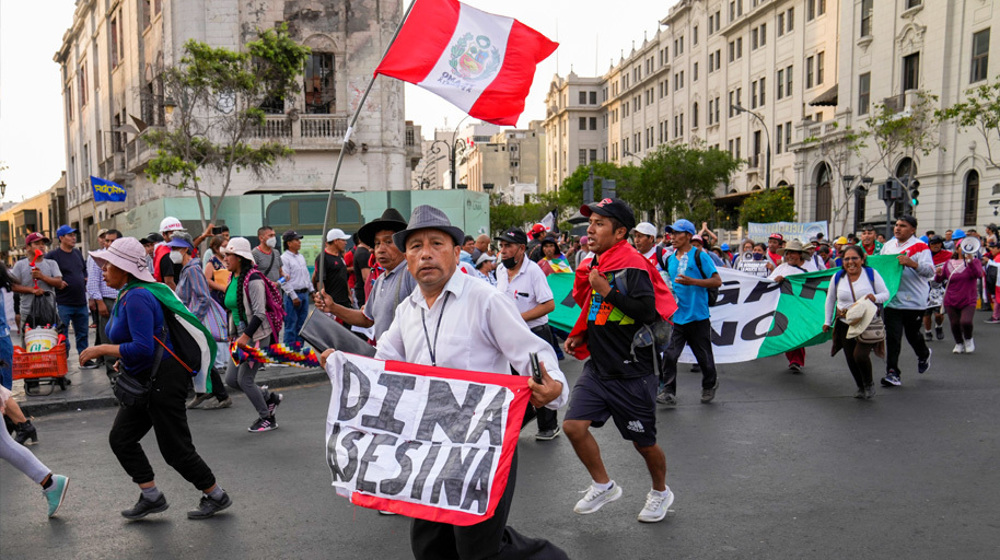
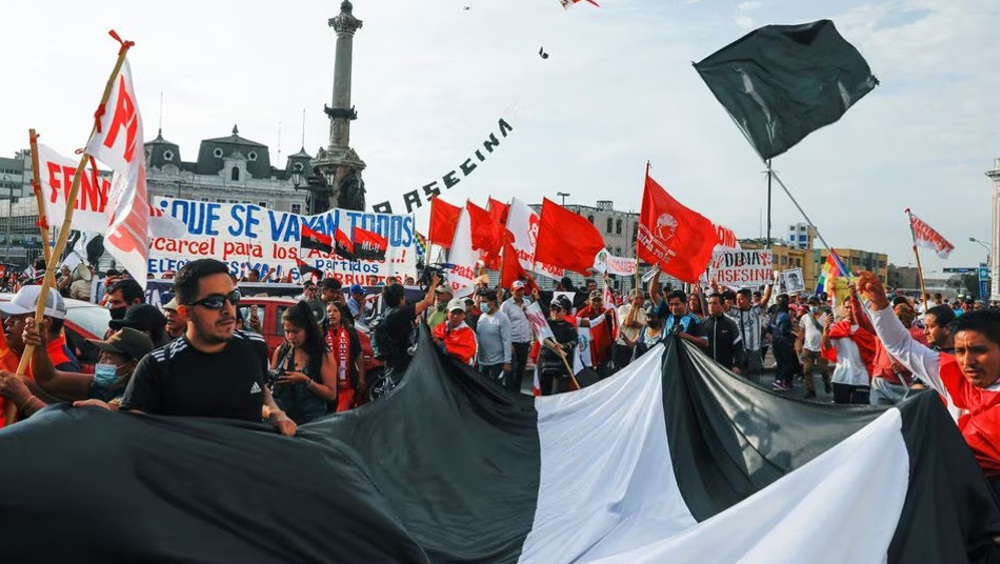
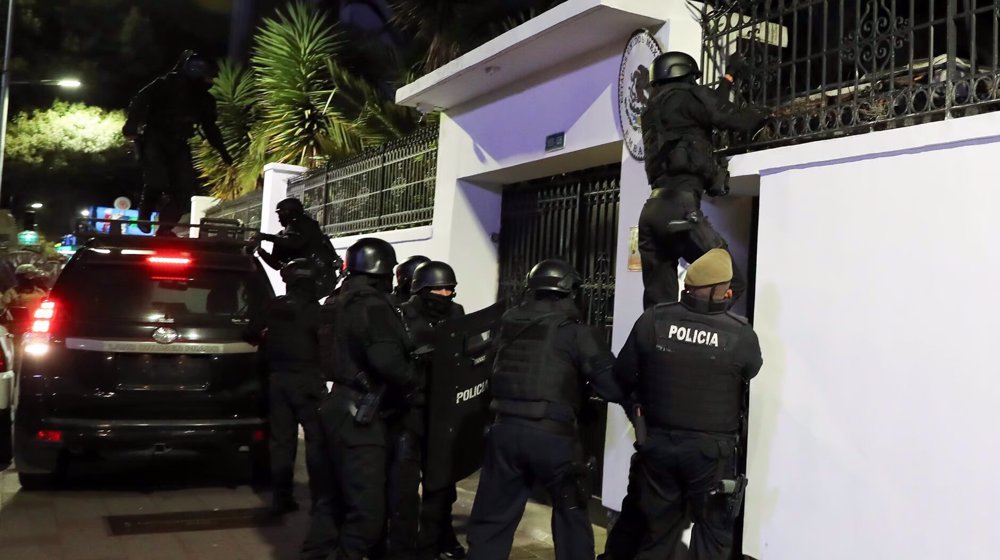
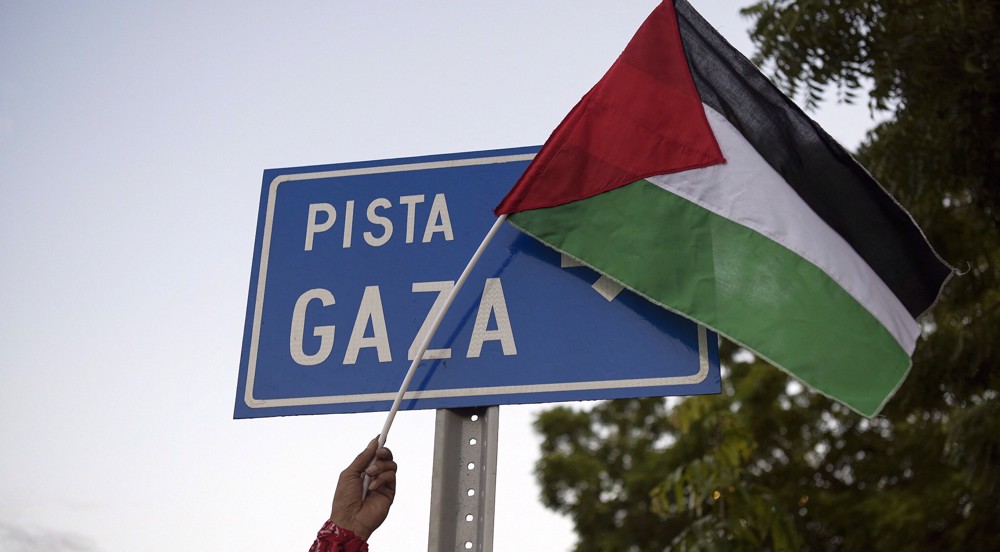
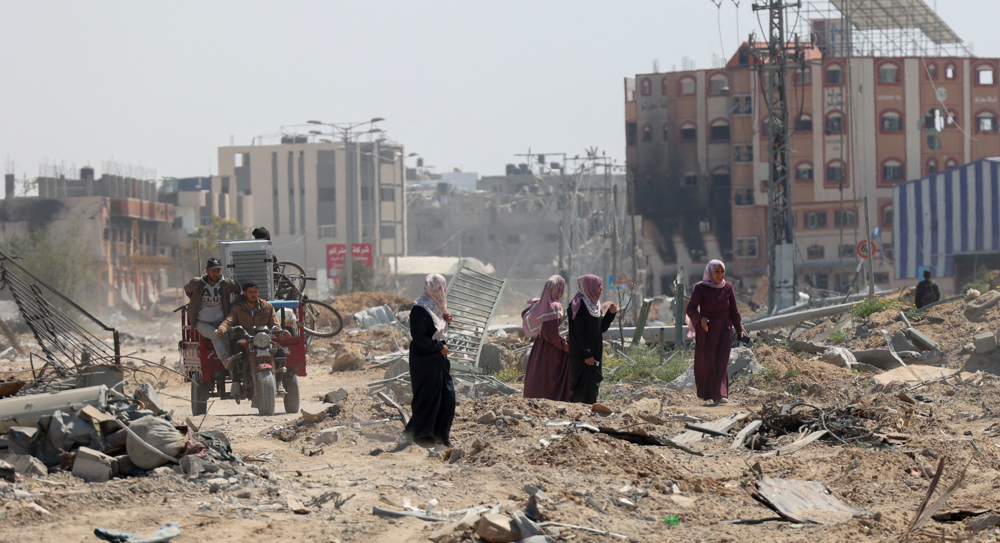



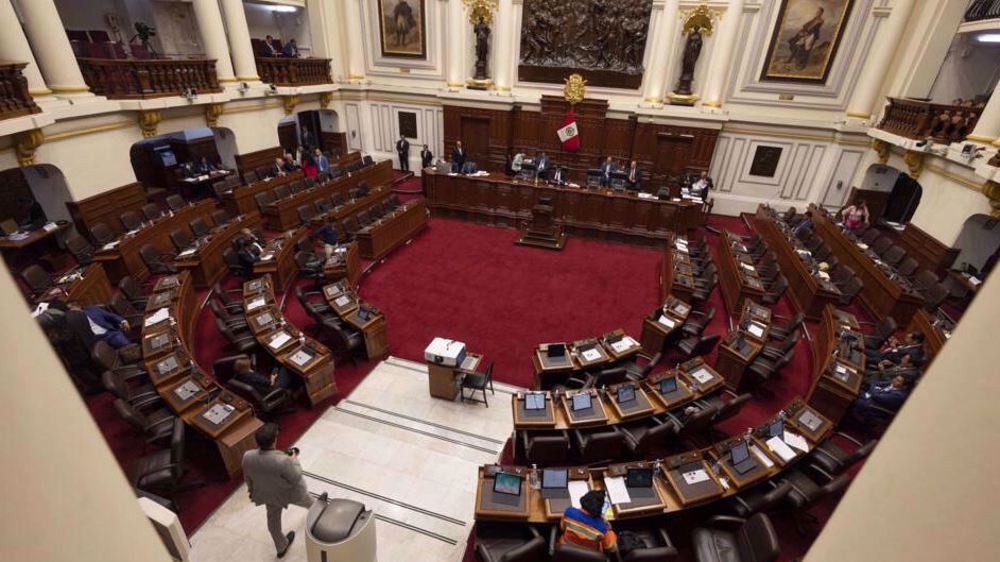
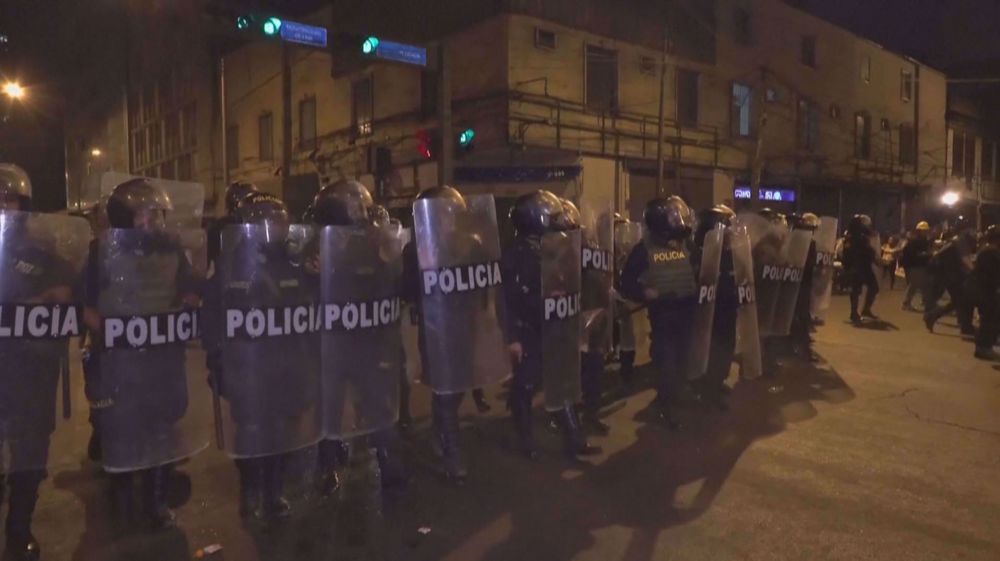
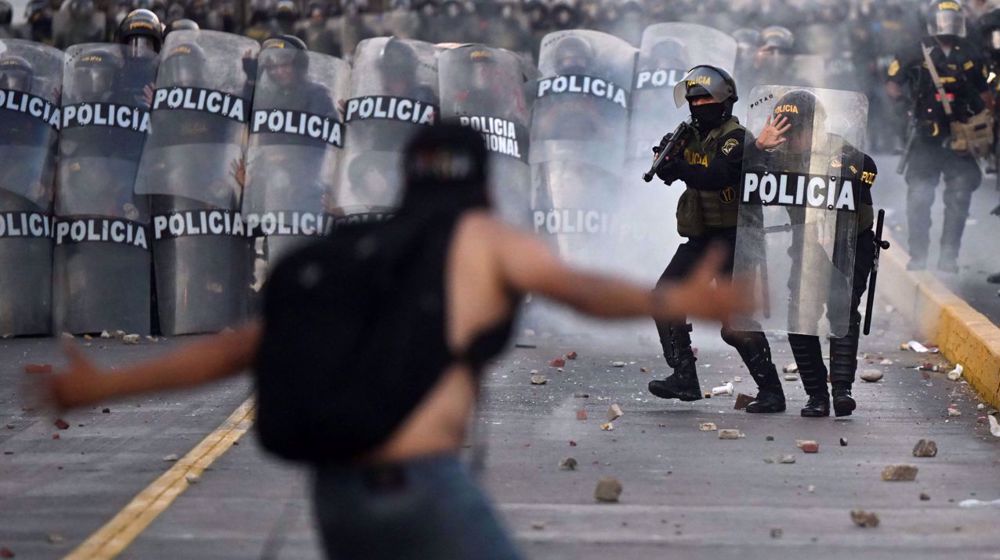

 This makes it easy to access the Press TV website
This makes it easy to access the Press TV website